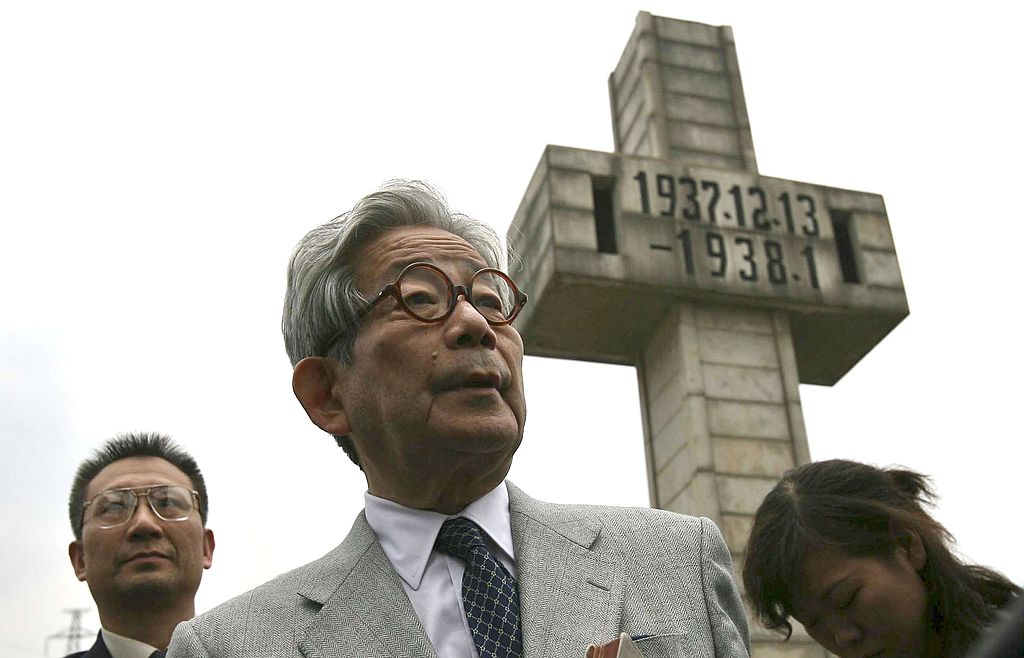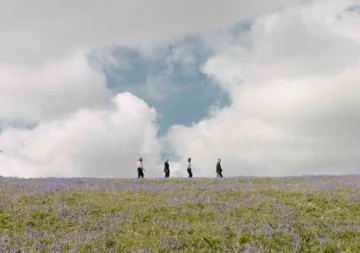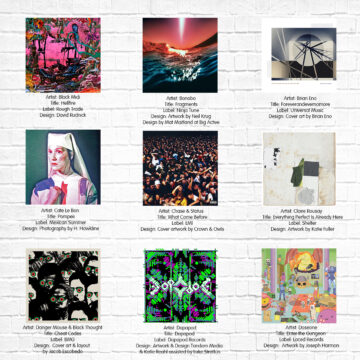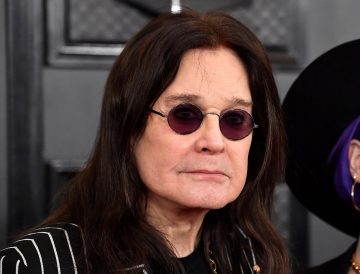
Oe won the Nobel Literature Prize in 1994, for his “darkly poetic” novels which painted a “disconcerting picture of the human predicament”, according to judges.
His work was across both fiction and essays, tackling a range of subjects from militarism and nuclear disarmament after the atomic bombing of Japan, to innocence, trauma and raising his son, who has learning difficulties.
He said of his writing: “[I] start from my personal matters and then link it up with society, the state and the world”.
‘Nobel Prize-winners seem to fall into two categories: those whom the prize honours, and those who honour the prize.’ Fredric Jameson on Kenzaburo Oe, from 2003 https://t.co/HjVvjGY2Xy
— London Review of Books (@LRB) March 13, 2023
Oe was known to be strongly influenced by both French and American writing, with some in his native Japan calling his style distinctly western, and likening him to William Faulkner.
American writer Henry Miller once compared Oe to Dostoevsky, noting his “range of hope and despair”. Fellow Nobel laureate Kazuo Ishiguro described Oe as being “genuinely decent, modest, surprisingly open and honest, and very unconcerned about fame”.
John Nathan, Oe’s translator, credited him with “creating a language of his own, in the manner of Faulkner and few Japanese writers before him”.
RIP to the great Kenzaburo Oe. https://t.co/E0KQA5x6S1
— New Yorker Fiction (@NYerFiction) March 13, 2023
Born in the village of Ose on the southern island of Shikoku, Oe was the fifth of seven children. He hailed from a family of wealthy landowners, who lost most of their property in the land reform policies imposed in Japan after the Second World War.
His father was killed in the war in 1944, and although Oe was ten-years-old when it ended, the conflict continued to overshadow his early life, and it became a topic he often revisited.
Later in life, he said: “But for my experiences of 1945 and the subsequent years, I would never have become a novelist.”
Oe recalled the shame he felt as a child when he decided he wasn’t willing to die for Japan’s Emperor – a question children were asked at school daily as they were raised to believe Hirohito to be a living god. He became a fierce critic of what he called Japan’s military and economic aggression.

NANJING, CHINA – SEPTEMBER 12: (CHINA OUT) 1994 Nobel Prize for literature winner, Japanese writer Kenzaburo Oe visits Nanjing Massacre Memorial museum on September 12, 2006 in Nanjing of Jiangsu province, China. The writer is in China to promote his latest book ‘Farewell To My Book.’ The Nanjing (Nanking) massacre was carried out by the invading Japanese troops in late 1937 to early 1938. (Photo by China Photos/Getty Images)
“The humiliation took a firm grip on him and has coloured much of his work,” the Swedish Academy said. “He himself describes his writing as a way of exorcising demons,” with his novels frequently depicting a world knocked off its axis by dark, disturbing forces.
In the 1960s, Oe drew international acclaim for Hiroshima Notes – “a selection of essays about the victims of the atomic bomb, and the valiant efforts of those who cared for them”.
Hiroshima Notes were published on the same day as Kojinteki-na taiken (A Personal Matter), which is described as “a darkly humorous account of a new father’s struggle to accept the birth of his brain-damaged child.” For Oe, the two works were inextricably linked.
“I wanted to reconstruct myself, my family, so I wanted to consider the Hiroshima people who wanted to reconstruct their lives after the disaster.
“I was always encouraged by the doctors at Hiroshima fighting against their death.”
In 1963, Oe’s son Hikari underwent surgery after being born with a brain hernia. The ensuing procedure left Hikari with learning difficulties.
He later admitted to once wishing for his son’s death – calling it a “disgraceful” thought, that “no powerful detergent has allowed me to wash out of my life.”
Oe’s final book, Bannen Youshiki shū (In Reito Sutairu), or In Late Style, was published in 2013.




